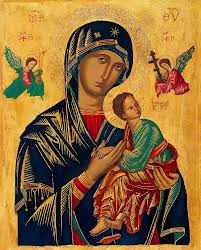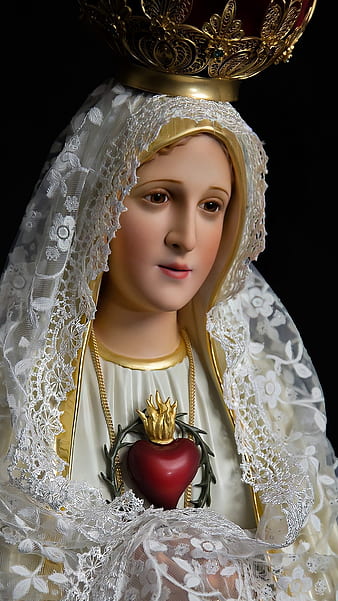Mary as a Source of Spiritual Solace and Intercession: A Theological Exploration
This article explores the significance of Mary, the mother of Jesus, as a figure of comfort and spiritual refuge within the Christian faith. We will examine her role through various theological lenses, including Marian theology, biblical accounts, and the lived experiences of believers. Key concepts such as intercession (the act of praying on behalf of others), theotokos (God-bearer, a title for Mary), and spiritual motherhood will be defined and applied throughout the discussion.
Mary's Role as Intercessor and Model of Faith: The concept of Mary as an intercessor is central to Catholic and many other Christian traditions. This stems from her unique relationship with God as the theotokos, a title reflecting her pivotal role in the Incarnation. Mary's unwavering faith and obedience, as evidenced in the Annunciation (Luke 1:26-38), serve as a potent example of trust in God's plan, even amidst uncertainty and potential hardship. This exemplifies the application of the virtue of faith within the framework of existential psychology: Mary’s unwavering belief, even in the face of the unknown, provides a model for believers grappling with uncertainty and adversity.
Biblical Narrative and Mary's Presence in Times of Crisis: The Gospels portray Mary as a steadfast presence in moments of profound crisis. At the foot of the cross (John 19:25-27), her unwavering love and devotion offer a powerful image of resilience and enduring faith in the face of suffering. This scene, often interpreted through a lens of attachment theory, highlights the importance of secure attachment figures in times of stress. Mary's presence offered Jesus comfort and support, providing a powerful model for the importance of spiritual support systems during times of personal and emotional turmoil. Her steadfastness models the resilience necessary for navigating challenging situations.
Mary's Representation in Theological Discourse and Tradition: The Catechism of the Catholic Church emphasizes Mary's role as a model of faith and charity, highlighting her complete adherence to God's will. This aligns with the concept of virtue ethics, emphasizing the cultivation of virtuous character traits. Mary's life, interpreted through this lens, offers a pathway toward spiritual maturity. The writings of saints like Bernard of Clairvaux, who encouraged devotion to Mary as a source of strength, further solidify her role as a spiritual refuge in various Christian traditions. This sustained devotion across centuries underscores the enduring power of Mary’s image in sustaining faith.
Mary in Contemporary Spiritual Practice: The Rosary, a traditional Catholic devotional practice, offers a structured approach to meditating on the life of Christ and Mary. This structured approach can be analyzed through the framework of cognitive behavioral therapy (CBT), suggesting that the repetitive nature of the prayers and the reflective focus on Christ’s life can be a tool for reducing anxiety and fostering emotional regulation. The practice allows for consistent interaction with Mary’s life story, potentially fostering a sense of connection and comfort.
Mary as a Spiritual Mother and the Concept of Spiritual Motherhood: The Gospel account of Jesus entrusting Mary to John (John 19:27) is often interpreted as establishing Mary's role as spiritual mother to believers. The concept of spiritual motherhood extends beyond the biological, representing spiritual guidance, nurturing, and advocacy. Through the lens of social support theory, we understand how vital such figures are to well-being and resilience. Mary's spiritual motherhood offers believers a sense of belonging, support, and guidance in their spiritual journeys.
Conclusions and Recommendations
This exploration reveals the multifaceted significance of Mary within Christian spirituality. Her role as intercessor, model of faith, and spiritual mother provides a rich source of comfort and strength, particularly during times of personal and collective turmoil. The consistent portrayal of Mary across biblical narratives, theological discourse, and devotional practices suggests a profound and enduring influence on believers' spiritual lives. Further research could explore the comparative impact of Mary’s role across different Christian denominations, focusing on variations in Marian devotion and their impact on believers’ experiences. The findings could inform pastoral practices and encourage the development of supportive spiritual resources for individuals navigating challenging life events. Understanding the psychological and spiritual benefits of Marian devotion can deepen the appreciation of its role in promoting faith, resilience, and well-being.
Reader Pool: Considering the theological interpretations and psychological perspectives presented, how might the concept of Mary as a spiritual refuge be further developed to enhance the well-being of individuals facing contemporary challenges?
```




